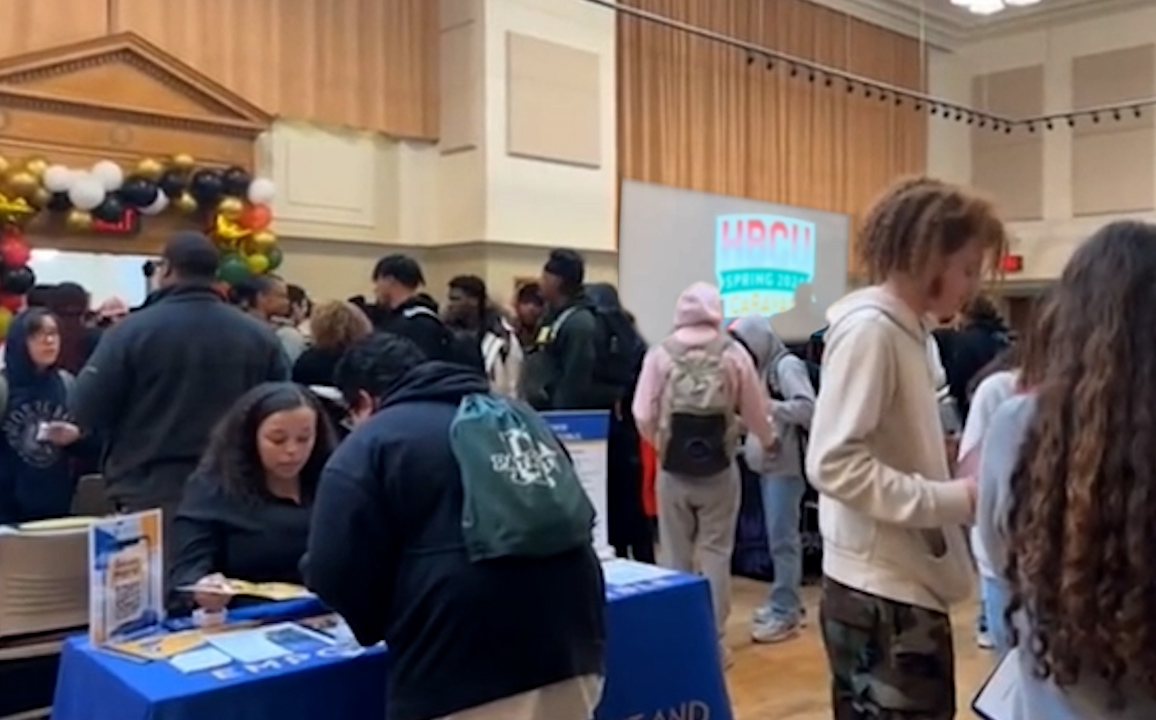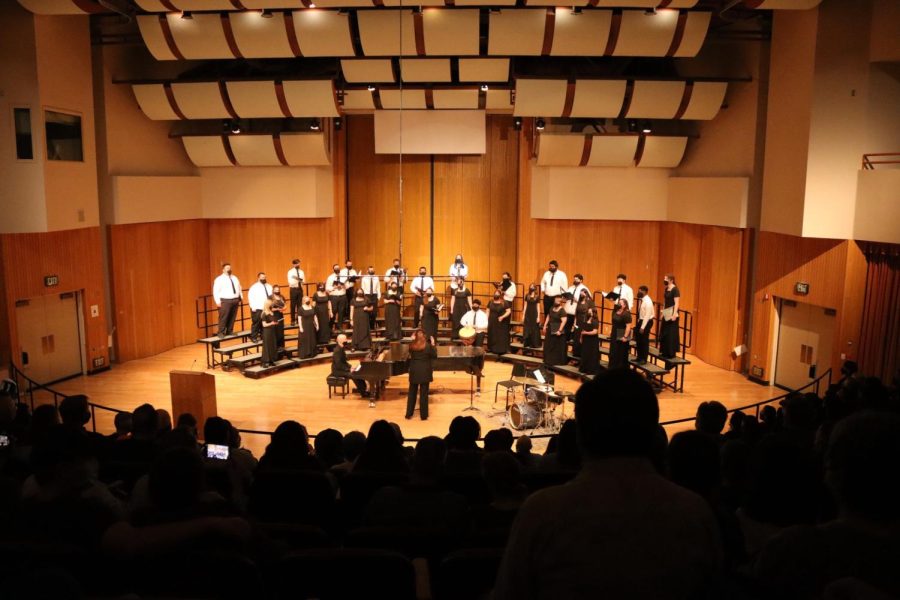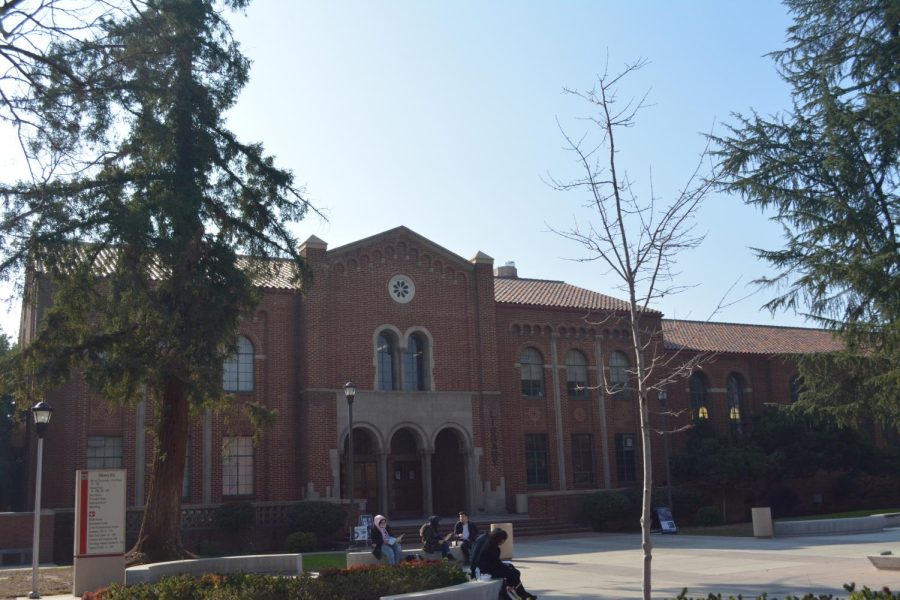The current national economic crisis weighs heavily on many at Fresno City College. Students are distressed over the economic turmoil that is gripping the nation.
FCC students report loss of homes, loss of jobs and inability to get employment, as well as hopelessness about the future.
More than 60 percent of FCC students said they have been affected by the economic downturn, according to a recent survey of 500 students on campus.
“It worries me. Will my family have a job next month? Will we have enough money for rent? It concerns me,” said one FCC respondent.
Another said, “The economic situation doesn’t make sense. A lot of bad decisions are being made.” Yet another student said simply, “It’s 1929 again.”
The prevailing sentiment of pessimism and despondency mirrors the national mood.
On Monday, as this story was finalized, Wall Street closed with a huge loss, with the Dow Jones industrials plunging 778 points, their largest one-day point drop ever. The Dow Jones Industrials lost seven percent of its value, and Americans lost about $1.3 trillion.
“I am very angry and worried,” one FCC student said. Among students who participated in the survey 14 percent said they had lost their jobs, 26 percent said their hours at work had been significantly reduced and 39 per cent said they have been unable to find jobs despite looking.
Even students who are not impacted directly say they have friends and family who have suffered drastically. 67 percent of survey respondents said they knew people who have lost their jobs, and 43 per cent knew people who have lost their homes due to the economic mess.
Fresno County is also hard hit by the economic problems. In a Fresno Bee story published Sept. 20, Fresno’s unemployment was 9.7 percent in August 2008. Jobs in construction and real estate were down 4.7 percent and 6.7 percent respectively, since August 2007. About 300 jobs or 1.3 percent of all restaurant jobs were lost in the year between August 2007 and August 2008.
“I am not satisfied with what’s going on; someone needs to step up and solve the issue,” said Marina Cantu, an FCC student who participated in the survey.
Aaron Pankratz, an economics instructor at FCC, said he believes things can get “drastically worse” if congress doesn’t help the nation’s financial institutions. On Monday, Congress failed to pass a $700 billion emergency rescue bill. The bill was an attempt at restoring confidence in the U.S. markets and financial institutions by relieving financial institutions of billions of dollars of bad debt and unfreezing the credit market.
Pankratz said the government should fix the problem. “If businesses can’t get loans to buy new equipment to keep their businesses running, they will be forced to lay off workers,” he explained. “If businesses are closing, there would be fewer jobs available, so someone coming out of Fresno City College looking for a job is not going to have as many opportunities.”
Devin Nunes, representative for California’s 21st Congressional District, covering most of Fresno County east of the City of Fresno voted against the $700 billion bill.
In a message posted on his website, he wrote that he opposed the bailout plan because “It was poorly written, hastily put together and inadequately vetted.” He continued that while he appreciates the urgency of the present crisis, he does not support “the sense of panic instilled upon the American public by Wall Street executives and many of our nation’s politicians.” Nunes concluded, “Taxpayers should not be liable for Wall Street risk taking.”
What caused the problem?
Gary Carter, an adjunct instructor at FCC and a real estate broker, attributes the crisis to greed. “A lot of the individuals were overconfident. Individuals on Wall Street got greedy; individuals at banks got greedy; lenders got greedy; real estate agents got greedy; buyers and sellers got greedy.”
“If a person bought a home in maybe 2004 or 2005 that was appraised for $200,000, three to four months down the road, the home would be worth $250,000 or $225,000; does that show you greed right there?” said Carter.
Examples of the greed Carter talked about are every where. A recent story, “Wall Street Executives Made $3 Billion before Crisis” by Tom Randall and Jamie McGee of Bloomberg News reported how Wall Street’s five biggest firms paid their top executives more than $3 billion in the last five years “while they presided over the packaging and sale of loans that helped bring down the investment-banking system.”
According to the article published Sept. 26 on Bloomberg.com, “Merrill Lynch & Co. paid its chief executives the most, with Stanley O’Neal taking in $172 million from 2003 to 2007 and John Thain getting $86 million, including a signing bonus, after beginning work in December.” The company was recently acquired by Bank of America Corp. for around $50 billion. The article added, “Bear Stearns Co.’s James “Jimmy” Cayne made $161 million before the company collapsed and was sold to JPMorgan Chase & Co. in June.”
FCC instructor, Gary Carter, also said the behavior of the investment community is a reflection of the American society in general, “I think we have a misconception about the way we live,” he said. “On Wall Street they’re saying, ‘we made bad investments; help us; come out and take over, so we can get money.’ Home owners, on a different level, are saying, ‘I am walking away, help me,’ so we all are in the state-of-mind that we need help; we need assistance like welfare aid.”
The city and county of Fresno would have received $7 million if the federal aid package would have passed. The grants would have been used to rehabilitate neighborhoods laid to waste by widespread foreclosures.
Most of the economists believe it will take more than a few years to rebound from this crisis; the question is will this generation of students see the light at the end of the tunnel.
A student said, “I hate that it is so hard to find a job as a teen. I need the money for food and shelter; I suffer because I don’t have it.”







